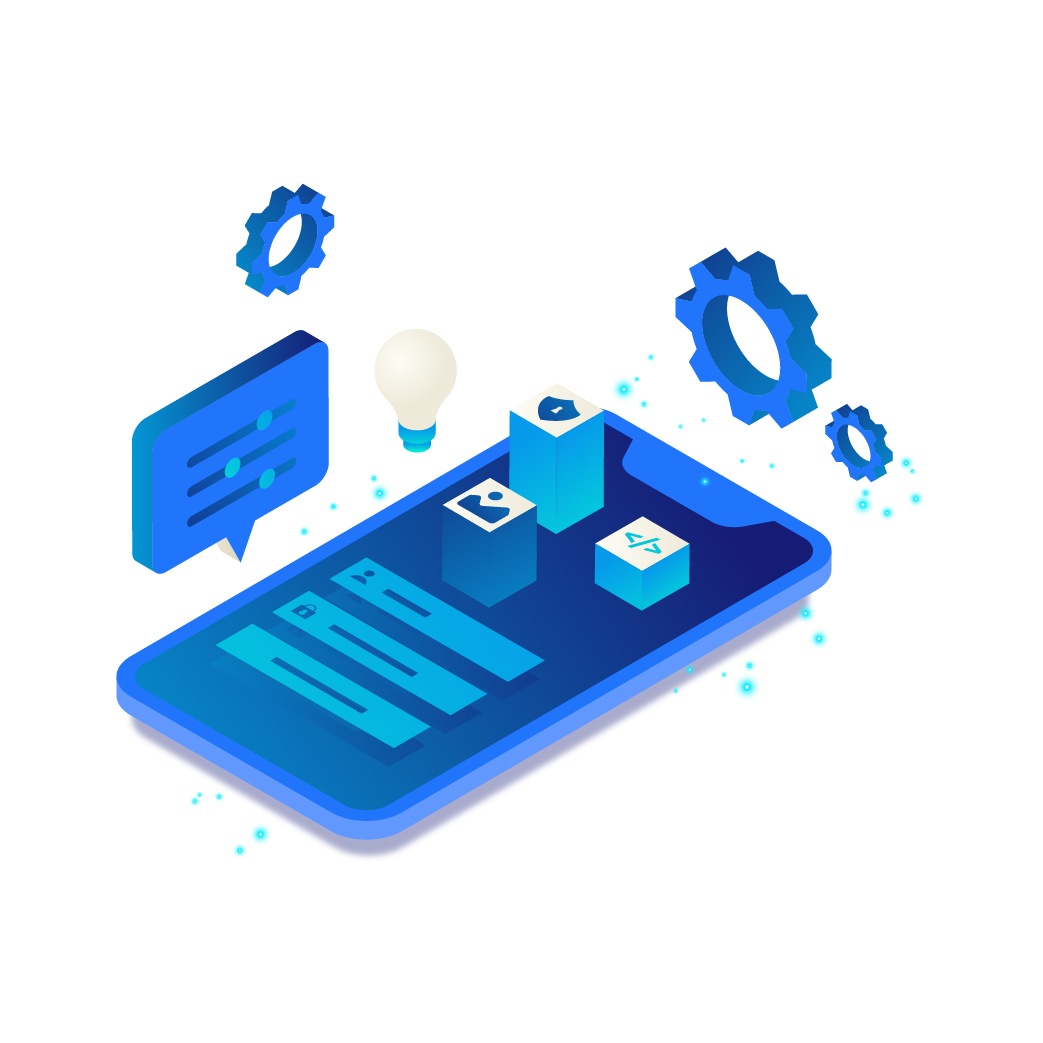What Does a Web Developer Do?
Unveiling the Web Developer’s Universe: Roles, Responsibilities, and Specializations

Everything you need to know about
What Does a Web Developer Do?
Web development has become an essential and in-demand profession in today’s digital age. Web developers play a crucial role in building and maintaining functional, visually appealing, and user-friendly websites. They possess unique skills and expertise that allow them to bring web projects to life. This article will explore what a web developer does, and the skills required to excel in this field.
Web developers are responsible for the technical implementation of websites and web applications.
They work closely with designers, project managers, and clients to understand the requirements and objectives of a web project. Once they clearly understand the desired outcome, they begin the development process. Here are some essential tasks that web developers typically perform:
Web Design Implementation
Web developers take the designs created by web designers and convert them into functional websites. They use programming languages such as HTML, CSS, and JavaScript (https://sonatafy.com/choosing-the-right-web-development-language/) to structure web pages, define the layout, and add interactivity. This involves writing clean and efficient code to ensure the website is accessible, responsive, and compatible across different devices and browsers.
Our Executive Team

Common Industries we provide Web Developers:
Healthcare & Life Sciences
SaaS & Information Services
Manufacturing
Financial Services & FinTech
Retail & E-Commerce
Insurance
Logistics & Automotive
Travel & Hospitality
The most important for
a Web Developer
Frontend Development
Frontend development focuses on the client side of web development, dealing with a website’s visual and interactive aspects. Web developers utilize their knowledge of HTML, CSS, and JavaScript frameworks to create engaging user interfaces. They work on tasks such as building navigation menus, implementing forms, integrating multimedia elements, and optimizing the website for speed and performance.
Backend Development
Backend development involves handling the server side of web development. Web developers use programming languages like Python, PHP, Ruby, Java, and frameworks like Django, Laravel, Ruby on Rails, or Spring, to build the logic and functionality that powers a website. They use databases, APIs, and server-side technologies to handle data storage, retrieval, and processing. Backend developers also take user authentication, data security, and server optimization.
Database Management
Web developers are often responsible for designing and managing databases that store the website’s data. They work with database management systems like MySQL, MongoDB, or PostgreSQL to create database schemas, manage data models, and ensure efficient data retrieval and storage. They may also implement data backup and recovery mechanisms to safeguard the website’s information (1).
“The software developer’s toolbox should include a medley of technical skills in programming, testing, debugging and database systems.”
– Devry


Common Industries we provide Web Developers:

COST-EFFECTIVE DEVELOPERS
Our Software Developers and Engineers cost
on average $45 to $65 per hour

HIGHEST QUALITY DEDICATED TEAMS
Access to the TOP 1% of Nearshore Software Development resources in Latin America

TIME SENSITIVE DEVELOPMENT
Sonatafy’s Nearshore Talent Acquisition can place qualified Software Engineering teams in as quick as 2 weeks
Testing and Debugging
as a Web Developer
Web developers conduct thorough testing and debugging to identify and fix any issues or bugs in the website’s code. They use debugging tools and techniques to trace errors, resolve compatibility issues, and optimize the website’s performance. This ensures the website functions smoothly and provides a seamless user experience across different platforms and devices.
Website Maintenance and Updates
Once a website is launched, developers maintain and update it. They monitor the website’s performance, security, and compatibility with new technologies and browsers. They apply security patches, fix bugs, and implement updates to ensure the website remains secure, functional, and up-to-date. They may also collaborate with content creators and marketing teams to integrate new features, improve SEO, and enhance the overall user experience.

Interested In Working With Sonatafy?
Proficiency in Programming Languages
for a Web Developer
Web developers must have a strong command of programming languages such as HTML, CSS, JavaScript, and at least one server-side language like Python, PHP, Ruby, or Java. They should be well-versed in these languages’ syntax, best practices, and features to write clean, efficient, and maintainable code.
Knowledge of Web Development Frameworks
Familiarity with web development frameworks and libraries such as React, Angular, Vue.js, Laravel, or Django can significantly enhance a web developer’s productivity and efficiency.
Understanding of Web Technologies
Web developers should deeply understand web technologies and protocols. This includes knowledge of HTTP, RESTful APIs, AJAX, and how web browsers interact with servers. Understanding client-server architecture, caching, and performance optimization is crucial for building high-quality web applications.
Responsive Design and User Experience (UX)
Web developers must understand responsive design principles and user experience (UX) best practices. They should be able to create websites that adapt seamlessly to different screen sizes and devices, ensuring an optimal user experience. Knowledge of CSS frameworks like Bootstrap or Foundation can be beneficial in achieving responsive design goals.
Problem-Solving and Debugging Skills
Web developers encounter various challenges and bugs during development. They should possess strong problem-solving and debugging skills to identify and resolve issues efficiently. The ability to think critically, analyze code, and debug effectively is crucial for maintaining the integrity and functionality of web applications (2).
“Software developers use their expertise and problem-solving skills to enhance technological possibilities, increase safety and privacy, and improve user and client experiences.”
– The Best Schools
Version Control Systems
Proficiency in using version control systems like Git is essential for web developers. Version control allows developers to track changes, collaborate with others, and manage the codebase effectively. Knowledge of branching, merging, and resolving conflicts is vital for working in a team environment and maintaining code integrity.
Continuous Learning and Adaptability
The field of web development is constantly evolving, with new technologies, frameworks, and best practices emerging regularly. Web developers must stay updated with the latest trends and advancements in the industry. They should be willing to learn new technologies and adapt to changes to remain competitive and deliver modern and efficient web solutions.
Web developers are responsible for transforming design concepts into functional websites and web applications. They possess technical skills, problem-solving abilities, and creativity to build visually appealing, user-friendly, and robust web solutions. Web developers play a pivotal role in shaping the digital landscape and delivering innovative online experiences by staying updated with the latest technologies and continuously improving their skills.
What are the Responsibilities and Duties Performed by a Web Developer?
Web developers have many responsibilities and duties in their day-to-day work. They are responsible for the entire development process, from conceptualization to implementation, and play a crucial role in shaping the online presence of businesses and organizations. Here are some of the key responsibilities and duties performed by web developers:
Gathering Requirements: Web developers collaborate with clients, project managers, and stakeholders to understand the requirements and objectives of a web project. They gather information about the target audience, functionality, design preferences, and desired website or web application features.
Planning and Architecture
Once the requirements are precise, web developers plan the structure and architecture of the web project. They create wireframes or prototypes that outline the website’s layout, navigation, and user flow. They also determine the technologies, frameworks, and tools based on the project requirements and constraints.
Frontend Development
Web developers work on the frontend development of the website, which involves implementing the visual and interactive elements that users see and interact with. They write HTML, CSS, and JavaScript code to create the user interface, design layouts, handle user interactions, and ensure responsiveness across different devices.
Backend Development
Web developers handle the backend development of a website or web application. They build the server-side logic, database integration, and business logic that power the website’s functionality. This may involve working with server-side languages like Python, PHP, or Java and utilizing frameworks and technologies to handle data storage, retrieval, and processing.
Database Management
Web developers are responsible for designing and managing databases that store the website’s data. They create database schemas, establish relationships between tables, and ensure efficient data storage and retrieval. They also implement database security measures and optimize database performance.
Testing and Debugging
Web developers perform thorough testing and debugging to identify and fix issues or bugs in the code. They conduct functionality, cross-browser compatibility, and performance tests to ensure the website functions correctly and provides a seamless user experience. They also address any errors or issues that arise during the testing phase.
Maintenance and Updates
After the website is launched, developers continue to maintain and update it. They monitor the website’s performance, security, and functionality and address any issues. They apply security patches, implement updates and new features, and ensure the website remains optimized and up-to-date.
%
TOP NEARSHORE TALENT
%
ATTRITION RATE
%
ENGLISH PROFICIENCY
RESOURCES DEPLOYED
What are the Different Specializations
a Web Developer Can Go Into?
Web development offers several specialization areas that web developers can choose based on their interests, skills, and career goals. Here are some of the different specializations a web developer can pursue:
Frontend Development
Frontend developers focus on building a website’s user interface and experience. They specialize in HTML, CSS, JavaScript, and related frameworks and libraries. They ensure the website is visually appealing, responsive, and optimized for different devices and browsers.
Backend Development
Backend developers specialize in the server-side programming and database management aspects of web development. They work with server-side languages, databases, and frameworks to handle data processing, storage, and retrieval. They focus on the logic and functionality that powers the website.
Full-Stack Development
Full-stack developers have expertise in both frontend and backend development. They can handle all aspects of web development, from designing the user interface to managing databases and server-side logic. Full-stack developers have a holistic understanding of the entire development process and can work on all web application layers (3).
“The world of full-stack development is large, and many new and evolving technologies continually push the limits of what a full-stack developer can create.”
– Coursera
Web Design
Some web developers specialize in web design, focusing on visual aesthetics, layout, and user experience. They have expertise in design principles, typography, color theory, and graphic design tools. Web designers work closely with web developers to create visually appealing and user-friendly websites.
E-Commerce Development
E-commerce developers specialize in building online stores and implementing e-commerce functionality. They work with platforms like Magento, Shopify, or WooCommerce to create secure and seamless online shopping experiences. They know payment gateways, inventory management, and order processing systems.
Mobile App Development
Web developers can specialize in development using technologies like React Native or Flutter. They build cross-platform mobile applications that integrate with web services or create standalone mobile apps. Mobile app developers strongly understand mobile UI/UX design and app performance optimization.
Content Management System (CMS) Development
CMS developers focus on creating and customizing content management systems like WordPress, Drupal, or Joomla. They build themes, plugins, and extensions that enhance the functionality and appearance of CMS-driven websites. CMS developers have expertise in PHP, JavaScript, and database management.
Web Accessibility
Web accessibility specialists ensure websites are accessible to all users, including those with disabilities. They implement best practices and adhere to accessibility standards like WCAG (Web Content Accessibility Guidelines). They optimize websites for screen readers, provide alternative text for images, and ensure keyboard navigation is available.
Web Security
Web security specialists specialize in securing websites and protecting them from cyber threats. They implement security measures like encryption, secure authentication, and protection against vulnerabilities. They conduct security audits, monitor for potential breaches, and address any security issues.
SEO and Digital Marketing
Some web developers specialize in SEO (Search Engine Optimization) and digital marketing. They optimize websites for search engines, improve rankings, and enhance visibility. They may also be responsible for implementing tracking and analytics tools to monitor website performance and user behavior.
These are just a few examples of the specializations within web development. Web developers can specialize in one or more areas based on their interests and career aspirations. Specializing in a specific area allows web developers to deepen their expertise and provide specialized services to clients or organizations.
What Does a Web Developer Do?
Web developers are professionals who build and maintain websites and web applications. They are responsible for the technical aspects of website development, including coding, programming, and implementing the functionality and design of a website. Web developers work with various programming languages, frameworks, and tools to create visually appealing, user-friendly, and functional websites.
What is Web Development Exactly?
Web development refers to the process of creating websites and web applications. It involves several stages: planning, designing, coding, testing, and deploying a website. Web development encompasses front-end development, which focuses on the user interface and user experience, and back-end development, which involves server-side programming and database management.
What Does a Web Developer Do?
Web developers perform a variety of tasks to create and maintain websites. Some of the everyday responsibilities of web developers include:
Gathering Requirements: Web developers work with clients or stakeholders to understand their requirements and objectives for the website or web application. They gather information about the target audience, desired features, and functionality.
Designing and Implementing User Interfaces
Web developers create websites’ visual elements and user interfaces. They use HTML, CSS, and JavaScript to design layouts, handle user interactions, and ensure a seamless user experience.
Writing Code: Web developers write code in various programming languages such as JavaScript, Python, Ruby, or PHP to implement the website’s functionality. They utilize frameworks and libraries to streamline the development process.
Testing and Debugging: Web developers conduct thorough testing to ensure the website functions correctly across different browsers and devices. They identify and fix any issues or bugs in the code to maintain the website’s integrity and performance.
Collaboration: Web developers often work in teams, collaborating with designers, project managers, and other developers. They communicate and coordinate to ensure the project is completed successfully and meets the client’s requirements.
Maintenance and Updates: Web developers are responsible for ongoing maintenance and updates after launching the website. They monitor the website’s performance, apply security patches, and implement new features or improvements as needed.
What Does a Frontend Developer Do?
A front-end developer focuses on a website’s visual and interactive aspects that users interact with directly. They work on the client side of web development, using languages like HTML, CSS, and JavaScript to build the user interface and ensure an engaging user experience. Some of the tasks performed by frontend developers include:
Translating Designs into Code: Frontend developers take design concepts and translate them into code, creating the visual elements, layouts, and styles of a website.
HTML and CSS Coding: Frontend developers write HTML and CSS code to structure the content and apply styling to the website’s elements.
JavaScript Development
Frontend developers utilize JavaScript to implement interactivity and dynamic behavior on the website. This can include handling user input, making AJAX requests, and manipulating the DOM (Document Object Model).
Responsive Design: Frontend developers ensure the website is responsive and adapts to different screen sizes and devices. They use techniques like media queries and flexible layouts to create a seamless experience across desktop and mobile devices.
Cross-Browser Compatibility: Frontend developers test and ensure that the website functions correctly across different browsers, addressing any compatibility issues.
Becoming a Frontend Web Developer:
To become a frontend web developer, you can follow these general steps:
Learn HTML, CSS, and JavaScript
Start by understanding these core web technologies. HTML provides the structure of a web page, CSS is used for styling, and JavaScript adds interactivity and functionality.
Practice Building Websites
Put your skills into practice by building simple websites and web pages. This will help you understand how different elements come together and give you hands-on experience with coding and design.
Learn Frontend Frameworks and Libraries
Familiarize yourself with popular frontend frameworks and libraries such as React, Angular, or Vue.js. These tools can enhance your development process and provide additional capabilities to build more complex and interactive websites.
Gain Design Skills
Front-end developers must understand design principles and user experience (UX). Learn typography, color theory, layout, and UX best practices to create visually appealing and user-friendly websites.
Stay Updated
The web development landscape constantly evolves, with new technologies and trends emerging. Stay updated with the latest developments in frontend web development, attend workshops or webinars, and follow relevant blogs and forums to expand your knowledge.
Build a Portfolio
As you gain experience and work on different projects, build a portfolio showcasing your work. This will help you demonstrate your skills and attract potential employers or clients.
Collaborate and Network
Engage with other web developers and designers by participating in online communities or attending local meetups. Collaborating with others can provide valuable insights and opportunities for growth.
Web Developers Company
Awards & Recognitions
Helping take our clients’ software development businesses to the next level has been quite an experience, and we are not slowing down any time soon. Providing a memorable experience and far surpassing our customers’ software development and solutions goals is one of the most rewarding experiences of our company to date.
We’re ready to start helping your company grow with our industry-leading custom software development solution, are you?

Earning Trust & Loyalty for our Software Development Services
Our executive team proudly provides complete web application development services in the healthcare, SaaS, Manufacturing, and FinTech fields from deployment to completion.
Our client-centric software development solutions have made us the healthcare app development provider of choice for clients such as Akido Labs, Datacubed Health, Sema Technologies, and Semantic AI, among others. With thousands of software development engineers deployed to date, clients love our personalized high-touch approach.
With high-quality delivery web development services and strong customer support and management, we give you the ability to focus on business decisions rather than software development issues.
Sonatafy Technology services can dramatically
improve the Web Developers.
Our Software Development Clients Have Spoken.

“We increased our productivity and quality by extending our team with Sonatafy resources. They are part of our ‘family’. Their passion, dedication, experience, and wisdom has been nothing short of impressive.”

“We have been using Sonatafy for software team augmentation. Their vetting process is extremely through and has saved us a huge amount of time. All of the candidates presented have been outstanding and have fit into our team perfectly.”

“The Sonatafy team consists of members who are dedicated, personable, and attentive. They will search tirelessly to match the right talent to meet your skills and budgetary requirements. Regardless of your situation, you cannot go wrong with Sonatafy.”

“The Sonatafy team has continually impressed us with the quality of their engineers — we have found excellent engineering leaders in their contractors who have helped tremendously. They really are an integral part of our team, and we’re very thankful for Sonatafy’s professional leadership in this space. I heartily recommend them to augment anyone’s teams or projects.”

“At IMAIGE Analytics, we are driven by purpose and outcomes. Sonatafy has been the exact type of partner we need to help us deliver on both. They’ve found solutions specific to our purpose and needs, their resources have contributed like long time team members from day one and they seem dedicated to progressively better outcomes from the start. Thanks to the team and to Steve for taking the time to make our business better!”

“The entire team at Sonatafy greatly surpassed our expectations. We require very specific skill sets and the team did an incredible job of screening and selecting top – notch candidates. Sonatafy’s attention to detail, professionalism, open communication, and collaboration with us ensured that we found highly skilled talent that fit seamlessly into our company’s culture. I can’t recommend them strongly enough.”

“Sonatafy makes it easy to find great and professional talent, with their help we have been able to solidify our team. Their process and communication is a refresher and a weight off our shoulders.”

I’ve used Sonatafy Technologies for the last 5 + years at several of my companies both small and large, in a staff augmentation capacity. I have been consistently impressed with the high – quality of technical skills as well as the team member’s high level of engagement and dedication to my projects. I’ve always considered my dedicated Sonatafy resources as members of my team , and their contributions and performance has been excellent. The combination of high performance and afford ability has been an outstanding benefit , and I would highly recommend using Sonatafy Technologies as your near shore technology partner.
What Does a Backend Developer Do
In Web Development?
Backend developers focus on the server-side programming and infrastructure of a website or web application. They handle tasks related to data storage, processing, and server-side logic. Some of the responsibilities of backend developers include:
Server-Side Programming
Backend developers work with programming languages like Java, Python, Ruby, or PHP to develop the server-side code that handles data processing and business logic.
Database Management
Backend developers design and implement databases to store and retrieve data. They use database technologies such as MySQL, PostgreSQL, or MongoDB to ensure efficient data storage and retrieval.
API Development
Backend developers build APIs (Application Programming Interfaces) that allow communication between different web application components or external services. This enables data exchange and integration with third-party applications. For more detailed information regarding the various types of APIs click the blue text.
Security and Performance Optimization
Backend developers implement security measures to protect the website and its data from vulnerabilities and potential attacks. They also optimize the backend code and database queries to ensure efficient performance.
System Integration
Backend developers integrate the web application with other systems or services, such as payment gateways, external APIs, or content management systems.
Backend Developer Tasks:
Some specific tasks performed by backend developers include (4):
“Work as a team with front-end developers, customers, system administrators and web designers to create a functional and attractive web application”
-Indeed
- Writing server-side code using programming languages such as Java, Python, or PHP.
- Designing and implementing databases and working with database management systems.
- Developing and maintaining APIs for data exchange and integration.
- Implementing security measures to protect the website and its data.
- Optimizing server-side code for performance and scalability.
- Collaborating with front-end developers, designers, and other team members to ensure seamless integration and functionality.
What Does a Full-Stack Developer Do?
A full-stack developer is proficient in both frontend and backend development. They have the skills and knowledge to handle all aspects of web development, from designing the user interface to building server-side logic and database management. Full-stack developers can work on all layers of a web application and handle tasks that involve both frontend and backend technologies.
Full-stack developers typically have a broad understanding of various programming languages, frameworks, and tools. They can effectively collaborate with designers, front-end developers, and back-end developers, making them valuable assets in web development projects.
What Does a Mobile Developer Do?
A mobile developer specializes in building iOS, Android, or other mobile applications. They use programming languages such as Swift or Kotlin to develop mobile applications optimized for mobile devices. Mobile developers are responsible for designing the user interface, implementing features and functionality, and ensuring compatibility with different devices and operating systems.
Mobile developers may work closely with backend developers to integrate mobile applications with web services and APIs. They are responsible for optimizing the performance and user experience of mobile apps and conducting thorough testing to ensure functionality and usability.
Mobile developers need to stay updated with the latest trends and technologies in mobile app development. They should be familiar with the guidelines and standards set by app stores like the Apple App Store and Google Play Store. Additionally, they may need to consider device compatibility, screen sizes, and touch gestures to create a seamless and engaging mobile experience.
How Much Does a Web Developer Make?
The salary of a web developer can vary depending on several factors, including experience, location, specialization, and the size of the company. Generally, web developers earn a competitive salary due to the demand for their skills.
According to the U.S. Bureau of Labor Statistics, the median annual wage for web developers was $77,200 as of May 2020. However, salaries can range significantly, with entry-level positions starting at around $40,000 and experienced professionals earning over $100,000 annually.
Their specialization can also influence the salary of web developers. For example, full-stack developers and those with expertise in in-demand technologies or frameworks may earn higher wages. Additionally, web developers who work as freelancers or run their web development businesses can make more based on the projects they undertake and the rates they charge.
How to Become a Web Developer: Quick Guide
If you’re interested in becoming a web developer, here’s a quick guide on how to get started:
Gain a solid foundation in programming
Start by learning the basics of programming languages such as HTML, CSS, and JavaScript. These are the building blocks of web development.
Expand your knowledge
Familiarize yourself with other programming languages and frameworks like Python, Ruby, PHP, React, Angular, or Vue.js. This will give you a broader skill set and open up more opportunities.
Build projects
Put your skills into practice by building your own websites or web applications. This will help you showcase your abilities and create a portfolio demonstrating your capabilities to potential employers or clients.
Learn from online resources
Take advantage of the vast online tutorials, courses, and resources available to learn web development. Platforms like Codecademy, Udemy, and freeCodeCamp offer comprehensive web development courses and tutorials.
Join coding communities
Engage with other aspiring web developers and professionals in online coding communities or forums. Participate in discussions, seek advice, and learn from others’ experiences.
Consider formal education
While only sometimes necessary, pursuing a degree or diploma in computer science, information technology, or a related field can provide you with a solid foundation and a deeper understanding of programming concepts.
Gain practical experience
Look for internships, part-time jobs, or freelance opportunities to gain valuable experience in web development. Working with experienced professionals and real-world projects can significantly enhance your skills and credibility.
Build a professional network
Attend industry events, meetups, and conferences to connect with other web developers and industry professionals. Networking can lead to job opportunities and valuable mentorship.
Continuously learn and adapt
Web development is fast-paced, and technologies evolve rapidly. Stay updated with the latest trends, learn new frameworks and tools, and embrace lifelong learning to stay competitive.
Becoming a web developer requires dedication, practice, and continuous learning. It’s a dynamic field that offers opportunities for growth and creativity.
Web developers are crucial in creating and maintaining websites and web applications. They handle the technical aspects of web development, from coding and programming to designing user interfaces and ensuring functionality. Frontend developers focus on the visual and interactive elements, while backend developers handle server-side programming and data management.
What does a web developer do?
A web developer creates, maintains, and updates websites and web applications. They handle various tasks related to web development, including writing code, designing user interfaces, implementing functionality, testing, and troubleshooting. Web developers work with programming languages, frameworks, and tools to bring websites to life and ensure they function optimally across different devices and browsers.
Is web development a difficult job?
The difficulty level of being a web developer can vary depending on factors such as the complexity of the projects, the technologies used, and the level of experience and expertise one has. Web development requires technical skills, problem-solving abilities, attention to detail, and a continuous learning mindset. While challenging, one can acquire the skills needed to excel in the field with dedication and practice.
What are the skills needed to be a web developer?
To be a successful web developer, specific skills are essential:
- Proficiency in programming languages such as HTML, CSS, JavaScript, and a backend language like Python, PHP, or Ruby.
- Knowledge of frontend frameworks and libraries like React, Angular, or Vue.js.
- Understanding of server-side languages, databases, and web servers.
- Experience with version control systems like Git.
- Familiarity with web development tools and technologies like IDEs, text editors, and command-line interfaces.
- Problem-solving and troubleshooting abilities to identify and resolve issues in code.
- Attention to detail for writing clean and efficient code.
- Understanding of responsive design principles and cross-browser compatibility.
- Knowledge of web security best practices.
- Strong communication and collaboration skills to work effectively in teams.
What does a web developer do daily?
The daily tasks of a web developer can vary depending on the project and their specialization. However, everyday activities include:
- Writing and reviewing code to implement website features and functionality.
- Collaborating with designers, project managers, and other team members to plan and execute web development projects.
- Testing and debugging websites to ensure they function correctly and are error-free.
- Updating and maintaining existing websites with new content, features, or security patches.
- Troubleshooting issues reported by users or clients and providing appropriate solutions.
- Researching and learning new technologies, frameworks, and best practices to stay updated with industry trends.
- Participating in meetings or discussions to gather project requirements and provide input on technical aspects.
- Optimizing websites for performance, speed, and search engine optimization (SEO).
- Documenting code, processes, and project-related information for reference and knowledge sharing.
Overall, the daily tasks of a web developer revolve around creating and maintaining websites, solving technical challenges, and collaborating with others to deliver high-quality web solutions.
References:
- The software developer’s toolbox should include a medley of technical skills in programming, testing, debugging and database systems. – Devry Quote
https://www.devry.edu/online-programs/area-of-study/technology/what-does-a-software-developer-do.html - Software developers use their expertise and problem-solving skills to enhance technological possibilities, increase safety and privacy, and improve user and client experiences. – The Best Schools Quote
https://thebestschools.org/careers/career-guide/software-developer/ - The world of full-stack development is large, and many new and evolving technologies continually push the limits of what a full-stack developer can create. – Coursera Quote
https://www.coursera.org/articles/full-stack-developer?trk_ref=relatedArticlesCard - Work as a team with front-end developers, customers, system administrators and web designers to create a functional and attractive web application – Indeed Quote
https://www.indeed.com/career/back-end-developer









